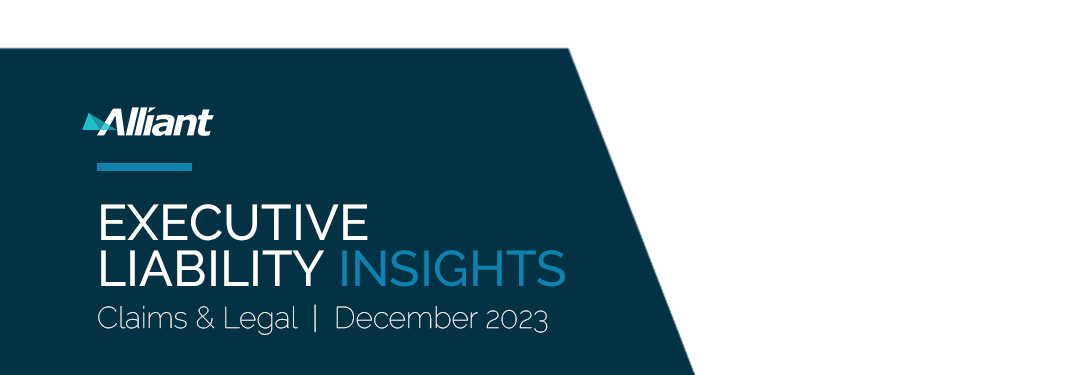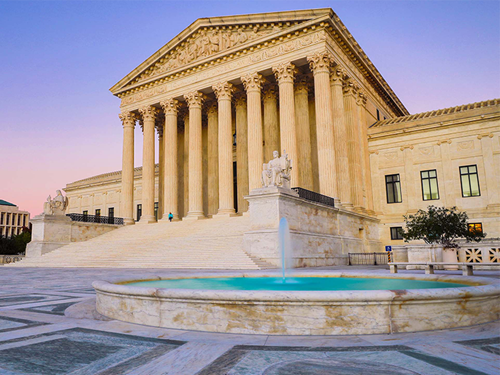
SECURITIES CORNER
SEC ENFORCEMENT ACTIONS UNDER RULE 21F-17 – PUBLIC AND PRIVATE COMPANIES SUSCEPTIBLE TO POTENTIAL VIOLATIONS


Recently, the SEC has seen a rise in settlements with employers for violating Rule 21F-17 (“the Rule”). The Rule was adopted into the Securities Exchange Act in 2010 to encourage individuals to report possible securities law violations by providing these “whistleblowers” with financial incentives and confidentiality protections. Specifically, section (a) of the Rule prohibits any person from “taking any action to impede an individual from communicating directly with the [SEC] staff about a possible securities law violation, including enforcing, or threatening to enforce, a confidentiality agreement…” An actual enforcement action under the Rule was not seen until 2015, however, over the years the SEC has initiated over twenty additional enforcement actions under the Rule.
Both publicly and privately held companies can be penalized under the Rule, and the SEC has honed in on imposing sanctions against privately held companies. Specifically, the SEC imposed sanctions against a private company based on the language in the company’s employee separation agreement which read, in part, that employees do not have the right to recover money damages/individual legal or equitable relief awarded by a governmental agency. The SEC reasoned that this language directly circumvented the Rule by forcing employees to forego important financial incentives that were intended to encourage whistleblowers to communicate directly with the SEC about possible securities law violations. As a result of its violation, the privately held company was forced to pay a quarter of a million dollars.
Based on its recent decision against the privately held company, the SEC sternly advised both privately and publicly held companies to understand that they cannot use form agreements to disincentivize employees from disclosing potential securities law violations to the SEC, which is a direct contraction to the Rule. The Rule was created to give the SEC some regulatory oversight over these companies and encourage employees to report potential violations by offering financial incentives and protection from retaliation.
THE FUTURE OF SEC'S IN-HOUSE COURTS IN DOUBT
SEC v. Jarkesy, 143 S. Ct. 2688 (2023).


The U.S. Supreme Court appeared ready to declare the SEC's in-house courts to be unconstitutional. Several justices expressed concerns about potential spillover effects on the government's ability to prosecute other violations such as immigration, customs, and workplace safety laws. Yet, the chances that the Court will limit the administrative law judges’ ability to impose civil penalties remains high.
In the case at issue, an investment firm was ordered by the SEC, in an in-house SEC court, to pay nearly $1 million for allegedly deceiving investors in a pair of hedge funds. Following the decision by an SEC in-house court, the hedge fund manager appealed to the Fifth Circuit, where they won on a ruling that held such proceedings were unconstitutional.
Several justices questioned the government’s attorney and why individuals facing securities law violations should not be allowed to have their cases heard before a jury, and instead subject themselves to the authority of an administrative law judge. In response, the government’s attorney pointed to a 50-year-old Supreme Court ruling that held the Seventh Amendment does not apply to administrative proceedings where government agencies turn to maintain the public's right to an open and fair market.
The Court believed that it was problematic that the government can deprive an individual of their property, their money, or substantial sums in a tribunal that is at least perceived as not being impartial. Additionally, the Court was concerned with the SEC's ability to impose financial penalties through administrative proceedings. The Court also struggled with a potentially radical change that could leave the courts wrestling with the future of other agencies. The latest arguments appear to foreshadow that the Court might vote to limit the ability of administrative law judges to impose civil penalties.
SEC TO POSTPONE RULES REGULATING PUBLIC DISCLOSURE RELATED TO SHARE REPURCHASES


Earlier this year, the SEC adopted amendments to modernize and enhance public disclosures regarding repurchases of an issuer’s equity securities that are registered under the Securities Exchange Act of 1934. The amendments (1) required additional detail regarding the structure of an issuer’s repurchase program and its shares repurchased, (2) eliminated the requirement to file monthly repurchase data in a periodic report, and (3) revised and expanded the existing periodic disclosure requirements about these repurchases.
Following the adoption of these rules, but prior to the rules becoming effective, the U.S. Chamber of Commerce along with others filed suit against the SEC in the Court of Appeals for the Fifth Circuit asking the court to review the SEC’s order seeking to prevent their implementation. The court postponed implementation of the rules stating that the SEC violated the Administrative Procedure Act in finalizing the rules.
As part of this decision, the court gave the SEC the opportunity to respond and address the deficiencies the court highlighted. Recently, the SEC issued an order postponing the effective date of the rules as well as a letter acknowledging that it was not able to address the deficiencies, effectively leaving open the question of whether the SEC will appeal the court’s decision or resubmit a rule proposal that complies with the court’s ruling.
|
Director/Officer |
Role |
Company |
|
John Karony |
CEO |
SafeMoon LLC |
|
John Hughes |
CCO |
Prophecy Asset Management LP |
|
Jake Soberal & Irma Olguin |
Co-CEOs |
Bitwise Industries Inc. |
|
Joseph Dupont |
Director |
Portola Pharmaceuticals |
|
Director/Officer |
Role |
Company |
|
John Karony |
CEO |
SafeMoon LLC |
|
John Hughes |
CCO |
Prophecy Asset Management LP |
|
Jake Soberal & Irma Olguin |
Co-CEOs |
Bitwise Industries Inc. |
|
Joseph Dupont |
Director |
Portola Pharmaceuticals |
NOVEMBER 2023 NOTEWORTHY SETTLEMENTS AND JUDGMENTS
|
Amount |
Director/Officer |
Role |
Company |
|
$1,509,048 |
Marguerite Cassandra Toroian |
Officer |
Bell Rock Capital, LLC |
|
$300,000 |
Michael Shustek |
CEO |
Vestin Mortgage LLC |
|
$965,401 |
Brian Beatty |
CEO/COO |
SAExploration Holdings, Inc. |
|
$223,229 |
Carlos Rezk & Marlio Diaz |
Officers |
Cool Holdings, Inc. |
|
Amount |
Director/Officer |
Role |
Company |
|
$1,509,048 |
Marguerite Cassandra Toroian |
Officer |
Bell Rock Capital, LLC |
|
$300,000 |
Michael Shustek |
CEO |
Vestin Mortgage LLC |
|
$965,401 |
Brian Beatty |
CEO/COO |
SAExploration Holdings, Inc. |
|
$223,229 |
Carlos Rezk & Marlio Diaz |
Officers |
Cool Holdings, Inc. |
Source: U.S. Securities and Exchange Commission
https://www.sec.gov/litigation/admin.htm